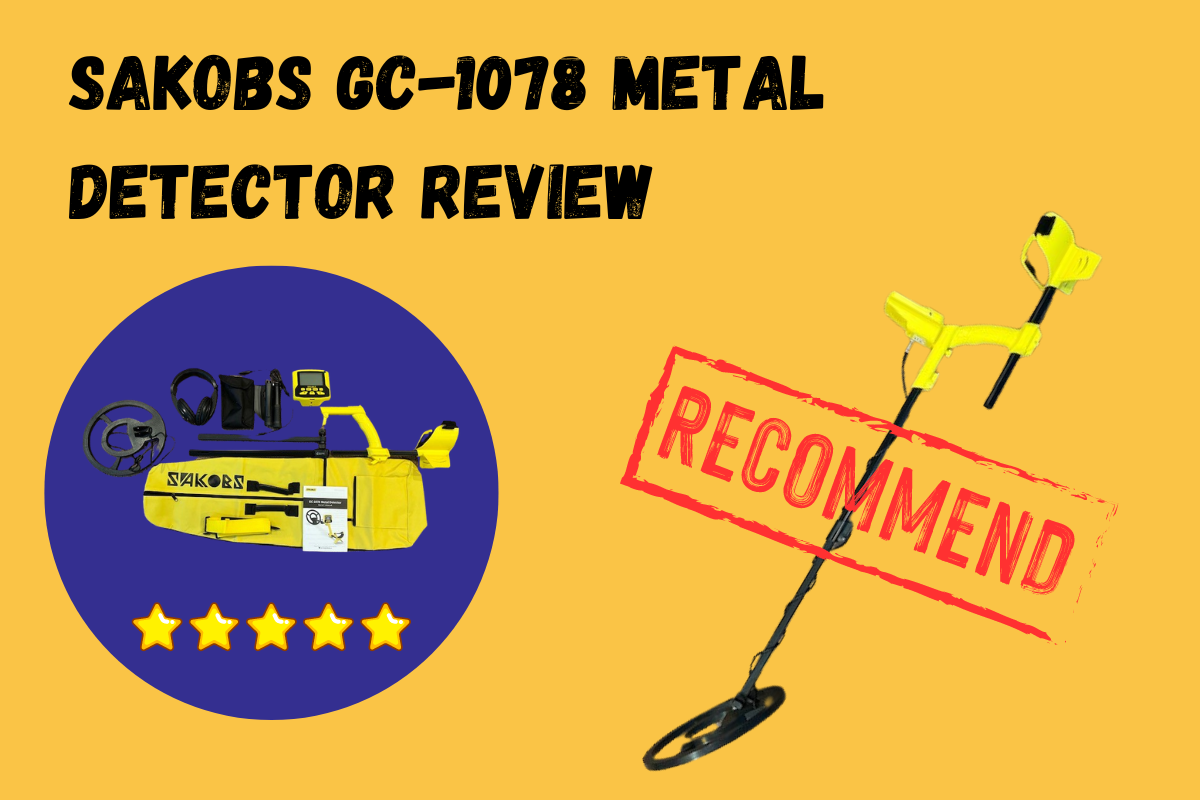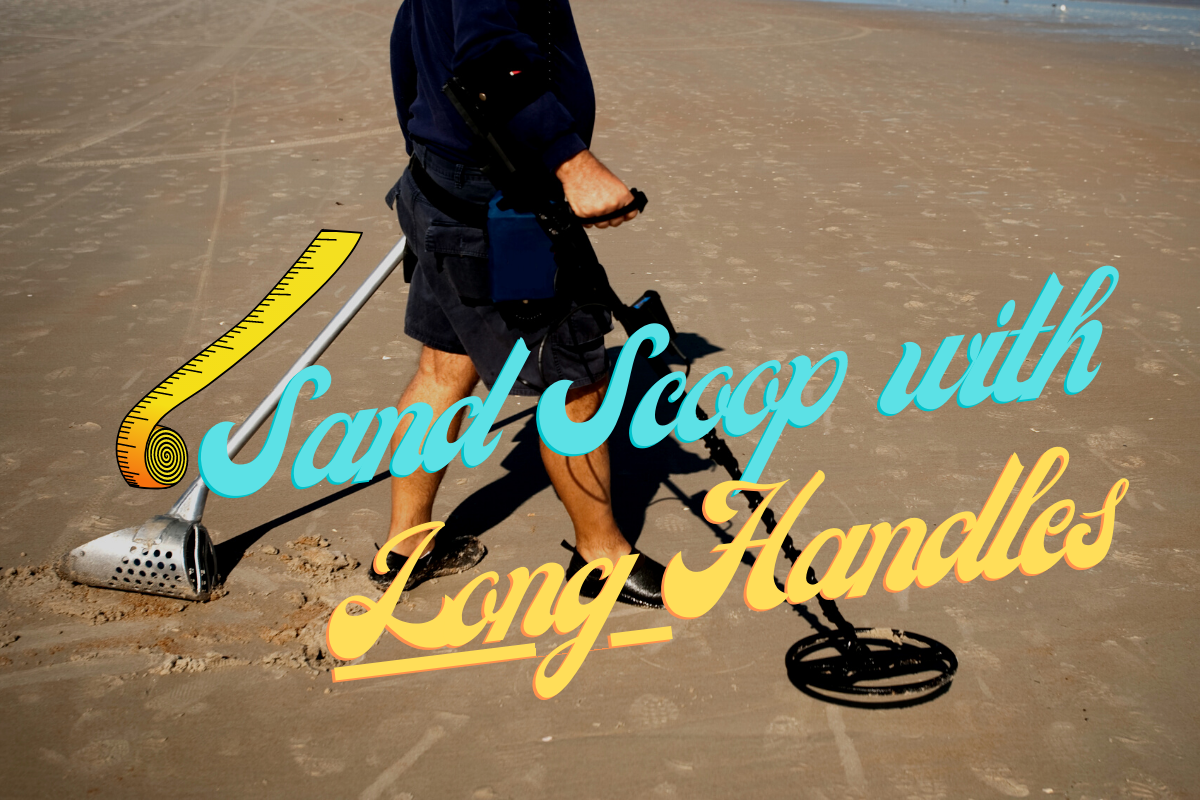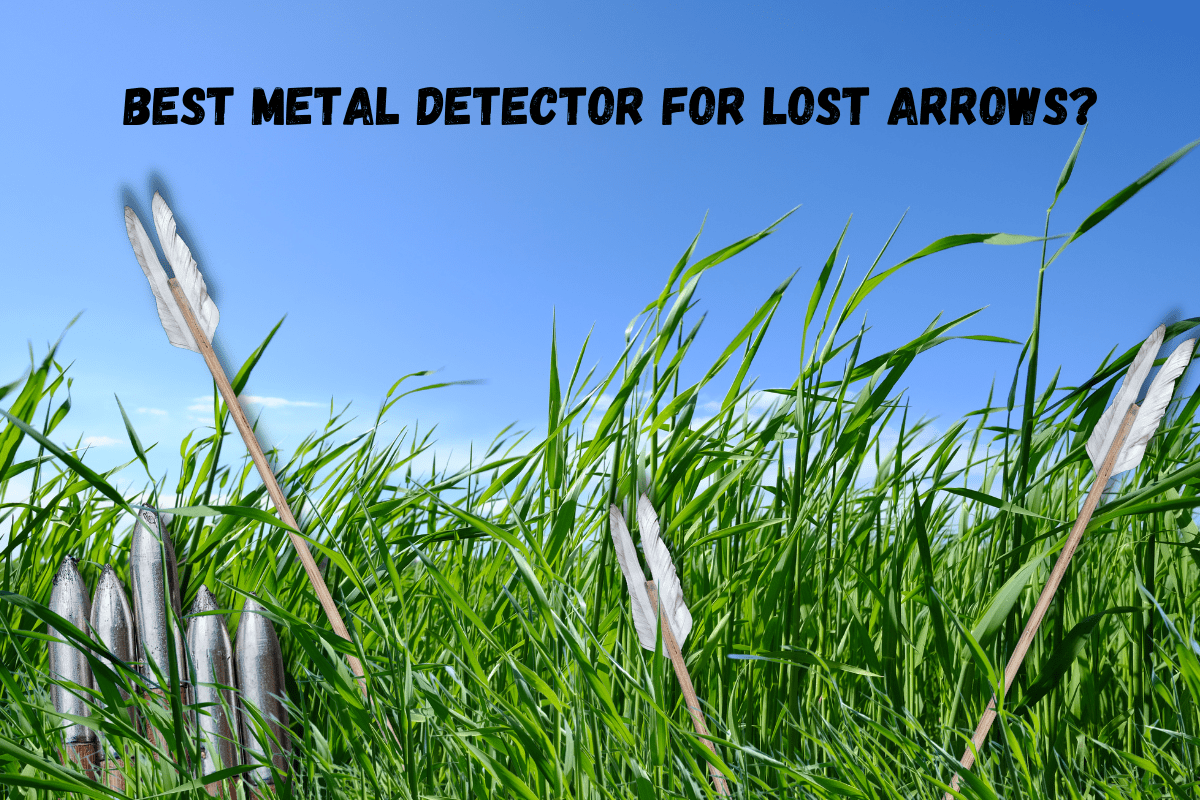When setting out for a fun-filled day of metal detecting, or if you’re just getting started with your first metal detector, it is important to have the right accessories. Choosing the best metal detecting accessories for your needs can make all the difference between a successful hunt or a lost opportunity.
In the article, we will cover 12 of the best metal detecting accessory categories and why each is important. While you might think you don’t need each and everyone, we will do our best to show you the value of including them in your arsenal of detecting supplies.
I should also mention that while this is a lengthy article, feel free to use the table of contents if you are looking for something specific.
So, without further ado, let’s get started and look at our list of essential metal detecting tools and accessories needed for your next dirt fishing expedition.
1. Metal Detecting Digging Tools
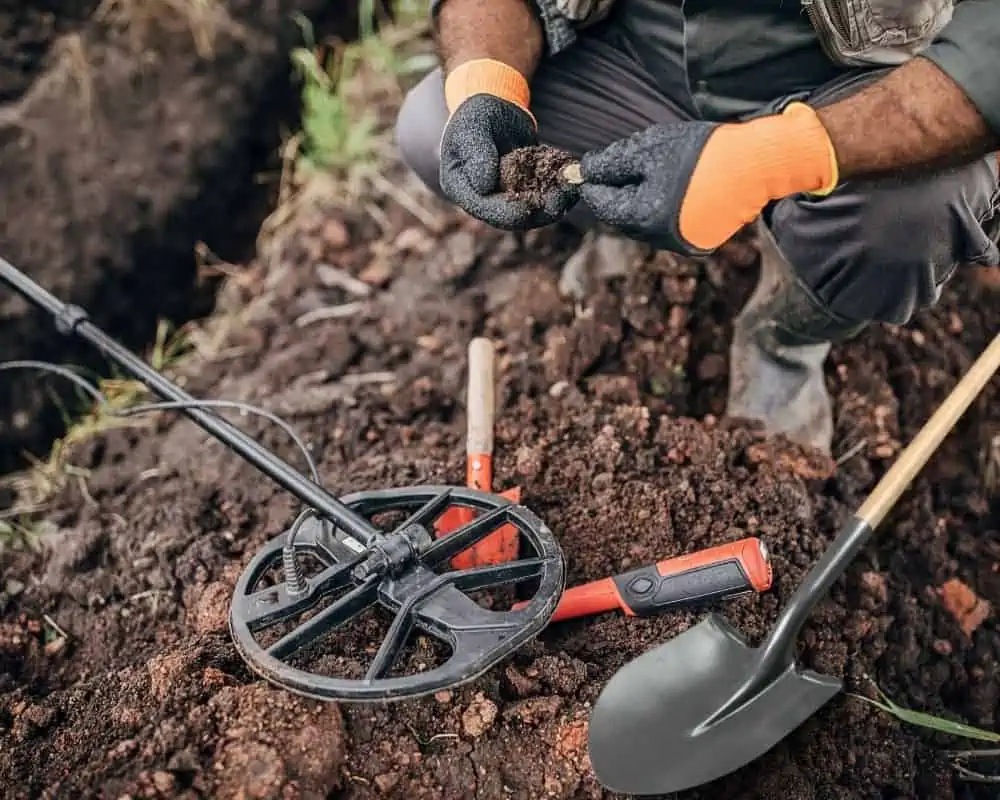
Metal detecting digging tools come in all shapes and sizes and are an almost necessary part of the metal detecting hobby. Whether you are dealing with hard or soft ground, there is a tool out there that can help make the job easier and more efficient.
From hand trowels and diggers to sand scoops made to sift through sand quickly, there is a metal detecting digging tool to help with any terrain you might encounter.
When metal detecting, it is inevitable that you will come across some tough spots and unexpected scenarios. Eventually, you will find yourself in a situation where you will need to use a sturdy full-length spade to unearth an object, or perhaps the ground is so tough, the right tool for the job is a metal detecting pickaxe.
While metal detecting picks might not be the first tool that comes to mind, they can be very helpful when you need to break through tough roots or dig in hard-packed dirt. If you are planning on spending any significant amount of time metal detecting, then a variety of digging tools will come in handy.
While there are almost an unlimited number of options when it comes to digging tools, we recommend the Garrett Razor Relic Shovel.
The Garrett Razor Relic Shovel is the perfect tool for anyone who loves to dig for treasures. The blade is made of durable steel and is 9 inches long, making it great for cutting through roots and tough soil.
The comfortable T-handle makes it easy to grip and the shovel includes a Garrett carry sheath for easy transport. The cutting-edge teeth make it easy to power through any surface, and the increased blade length means you can dig faster and more efficiently.
The shovel is a little heavy but that just means it can handle whatever you throw at it. Whether you’re digging for hidden treasures in the rain-soaked soil or hard-packed clay, the Garrett Razor Relic Shovel is the perfect tool for the job.
If you’re needing something a little more compact with some versatility, you might like the Rhino USA Folding Survival Shovel.
Weighing in at only 2 pounds, this shovel is perfect for carrying with you through the muck and mud or along some forgotten beach looking for treasure. The full 31″ length extends to provide plenty of leverage, while the adjustable handle length means you can find the perfect fit for your needs.
The carbon steel construction and sawtooth edge make short work of tough materials like roots and rocks, while the integrated pickaxe is perfect for breaking up tough terrain. The Rhino shovel also folds down for easy transport and comes with a quality stow bag.
Now, let’s talk about the small metal detecting digging tool accessories. You can’t really go metal detecting without a reliable handheld digger!
The Garrett Edge Digger is the perfect tool for metal detecting enthusiasts! This handy little accessory comes with a sheath for belt mount and features a strong carbon steel blade with cutting-edge teeth. It also has a non-slip blade guard with a comfortable rubber handle, making it easy and safe to use.
Weighing only 1 pound, the Garrett Edge Digger is the perfect size for taking on the go. Plus, the base makes an excellent connection to the blade, ensuring that you’ll be able to get the job done quickly and easily, and ideal for cutting out the perfect plug, in no time.
While it may seem like the blade and teeth are dull upon first inspection, all that is needed is a quick sharpening to get that manufactured rubbery material off, and you’re good to go! While I wouldn’t recommend this digging tool as your best option for cutting thick roots, it’s perfect for searching and plugging a hole in a flash.
I want to take a quick second to point out something…I know it may seem like we are pushing Garrett products here but that is purely coincidental. While there are a ton of great options for any sized digging tool like Lesche, CKG, and Fisher products, Garrett is known for making high-quality metal detecting products that will last you for years to come.
In my opinion, it’s simply one of the more superior brands for certain products. But to each their own!
Finally, if your target area is covered in sand or loose minerals, a sand scoop is an absolute must-have metal detecting accessory!
The CKG Sand Scoop is a sought-after choice for detectorists on the beach, underwater, or digging up treasures on the surf. It’s a compact and lightweight (1.6 pounds) scoop made of rust-resistant stainless steel that is durable no matter the conditions.
Its length is less than 10 inches and its most attractive feature is the small 7 mm hexagon-shaped holes, making sure that you don’t miss out on any metal escaping the scoop.
Even better, there is a 1.14-inch top hole that makes this sand scoop adaptable for those not wanting to do a lot of bending over while they hunt. Just add any length pole into the top hole and start sifting with purpose.
What Should You Consider When Buying a Metal Detecting Digging Tool?
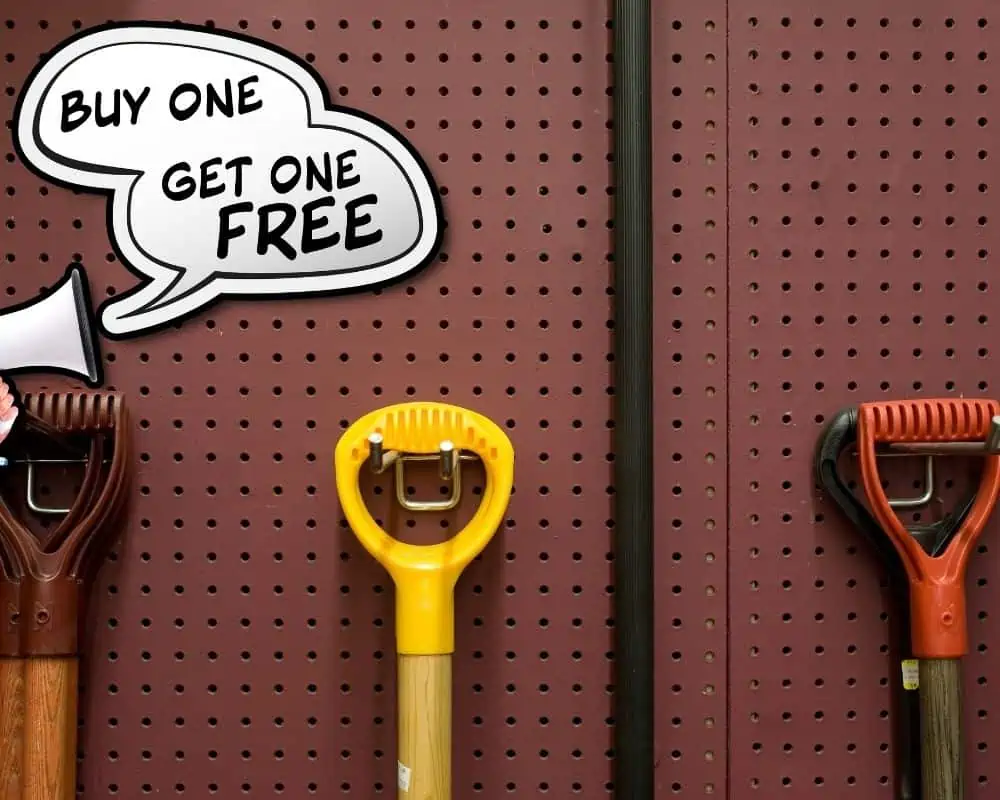
Now that we’ve gone over some of the best metal detecting digging tools, it’s time to talk about what you should consider before making your purchase.
First and foremost, think about what type of metal detecting you’ll be doing most often. If you’re someone who frequents the beach or water, then a sand scoop is an essential piece of metal detecting equipment.
On the other hand, if you’re someone who metal detects in a variety of different environments, then a versatile tool like the Garrett Razor Relic Shovel might be a better choice for you.
Another thing to consider is the size and weight of the digging tool. If you plan on metal detecting for long periods, then a lightweight tool that is easy to stow away and carry around with you should be at the top of your list when making a decision.

Finally, consider the price of the metal detecting digging tool. Just like anything else, there are a variety of options that range in price. It’s important to find something that is high quality but also fits within your budget.
You don’t always need the top-of-the-line accessory to get the job done. Sometimes the digging tool that works best for you is the most affordable option.
2. Metal Detecting Gloves
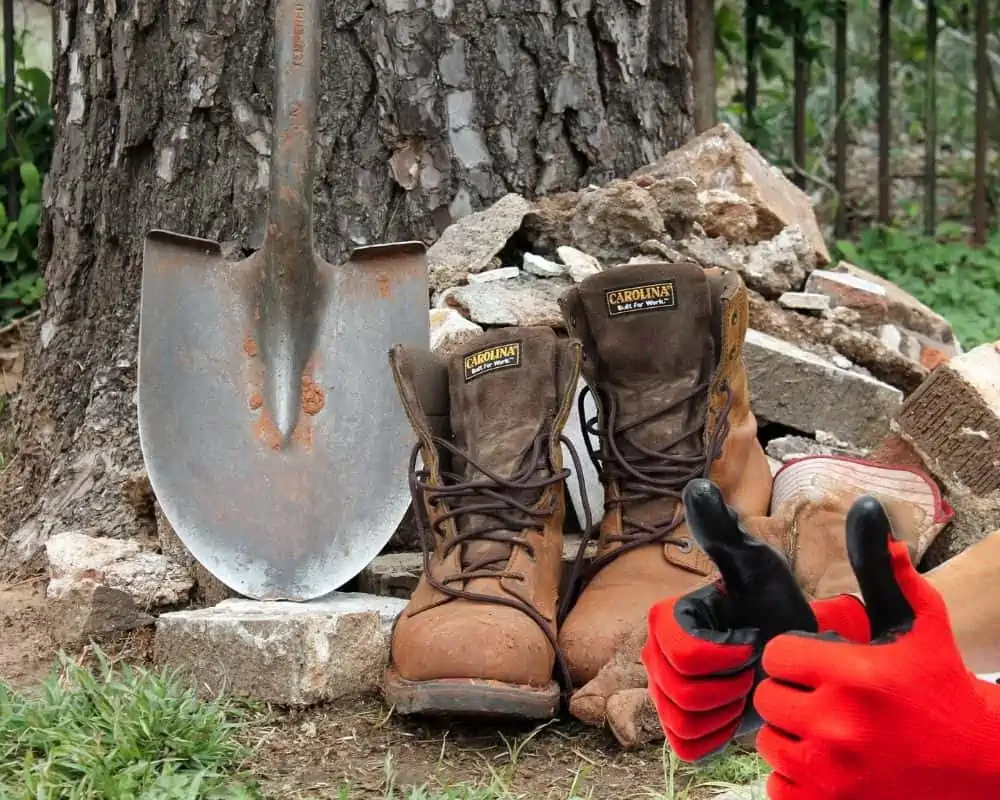
One metal detecting accessory that is often overlooked is gloves. It’s important to protect your hands while metal detecting, especially if you’re going to be doing a lot of digging. The last thing you want is to get a nasty cut or scrape that could potentially ruin your metal detecting adventure.
Gloves do a lot more than just protect you from unseen sharp objects, they also help you grip the metal detecting shovel or spade more securely. This is important when you’re trying to pry something loose or are dealing with a difficult surface.
Certain gloves can also keep your hands warm in cold weather conditions and help you grip wet surfaces.
There are a lot of different gloves on the market that are designed specifically for metal detection. But, if you can’t find any metal detecting gloves, then any type of work glove will do the trick.
Before I upgraded my gloves a couple of months ago, I was a big supporter (and still am!) of DEX FIT work gloves.
These gloves are made from 100% nylon and fit snugly to your fingers for a comfortable, second-skin feel. The 15-gauge nylon and spandex blend provides precision on delicate jobs, while the non-slip grip ensures safety even in underwater conditions.
The breathable water-based rubber coating keeps your hands comfortable all day long, and the touchscreen compatibility means you’ll never have to take your gloves off to use your phone.
What’s great about these multi-purpose gloves is that they are machine washable, so no worrying about any dirt, grime, or metal dust ruining the gloves. Another benefit to these gloves is how well they hold up in the water.
However, the DEX FIT isn’t waterproof or even water-resistant, but when you do submerge your hands underwater, you never lose the grip you’ve come to expect in dry conditions.
Now, if you’re looking for something a little more heavy-duty and a glove that holds up better in wet conditions, you’ll probably like the Ironclad EXO2-MWR-05-XL EXO Modern Water Resistant Gloves
The Ironclad EXO gloves are the perfect gloves for all of your outdoor needs! With a water-resistant (not waterproof!) palm, neoprene knuckles, and hoop-and-wrist closure, these gloves will keep you safe and dry while you work.
The reinforced fingertips go a long way in protecting and lengthening the life of these gloves when you constantly find yourself digging in the dirt. This glove having some more protective features can reassure you that cold weather won’t be a big factor on your fingers.
I love the hoop-and-wrist closure for keeping out any dirt or mud trying to sneak its way into the Ironclad EXO while digging out any buried relics or coins. Also, if you’re metal detecting in the rain, you don’t have to think twice about your hands getting soaked while trying to work your equipment.
Let me be clear though, these gloves are not waterproof! Only the palm is water-resistant due to the DuPont Teflon treatment. If you want a glove that is made for more wet conditions, (diving scenarios), then you’ll want to check out something made more for scuba gear.
What Should You Consider When Buying Metal Detecting Gloves?

When you’re looking for the best gloves for metal detecting, there are a few things you should keep in mind.
First and foremost, you want to make sure the gloves fit snugly but not too tight. If the gloves are too loose, then they can easily fall off when you least expect them. But if the gloves are too tight, then they can cut off circulation to your hands and make it difficult to metal detect for long stretches.
It’s important to find a balance between the two.
Another thing you want to consider is the material of the glove. You want something durable but also flexible. Something like leather or Kevlar would be too stiff and wouldn’t allow you to have the dexterity you need to metal detect.
And finally, consider when and where you are metal detecting. The gloves needed for metal detecting in Nevada are probably going to be very different from the gloves needed in Alaska.
3. Metal Detecting Pouch
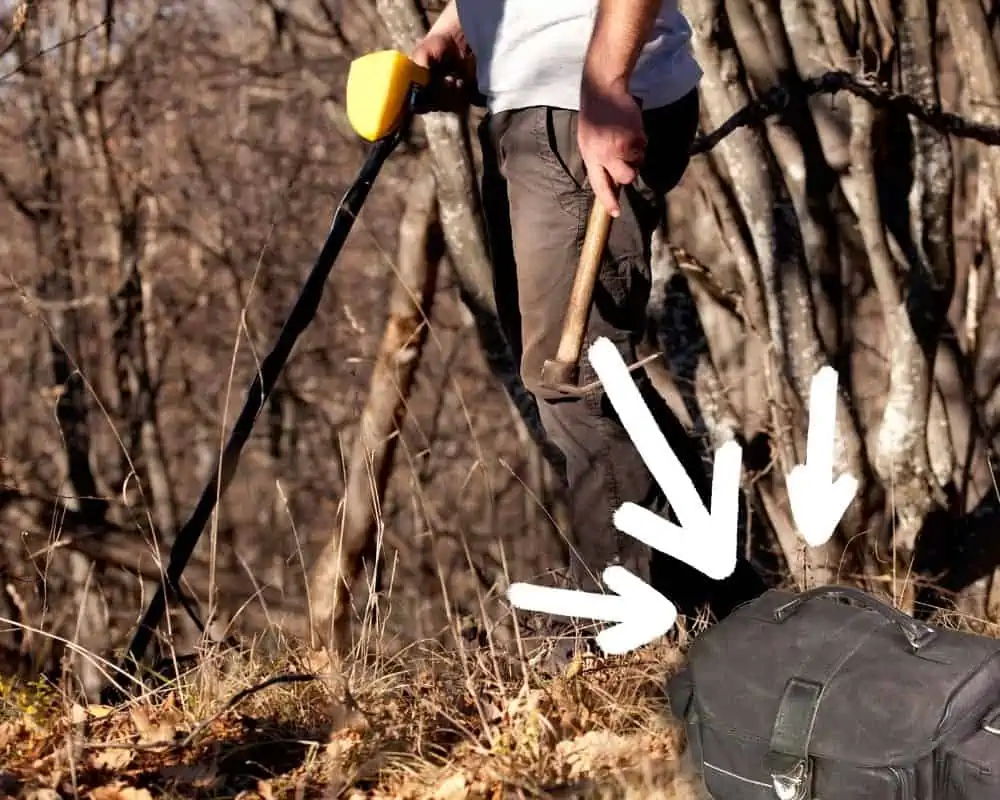
A metal detecting pouch is an essential piece of equipment, whether you are a beginner or a seasoned metal detectorist.
A metal detecting pouch allows you to keep all of your small metal detecting tools and accessories organized in one place. It also frees up your hands so that you can focus on metal detecting. In addition, it gives you a place to store all your finds securely and safely.
There are many different types and styles of metal detecting pouches available on the market, so it is important to choose one that suits your specific needs. For example, some metal detecting pouches have compartments for storing coins, while others have mesh pockets for holding tools.
If you’re looking for a solid recommendation, I’d go with a Jueachy Drop Leg Bag.
This bad boy comes complete with a water bottle pouch to keep you hydrated on the go, as well as 8 pockets to store all your necessary gear. The surface material is anti-hook and cut-resistant, while the zippered closure keeps everything safe and sound.
The waist strap adjusts to fit any size, and the detachable leg strap ensures a comfortable fit. Plus, the buckles make it super easy to take this Jeuachy leg bag on and off – perfect for when you’re in a hurry. And last but not least, this baby is waterproof, making it ideal for any treasure hunt.
What Should You Consider When Buying a Metal Detecting Pouch?
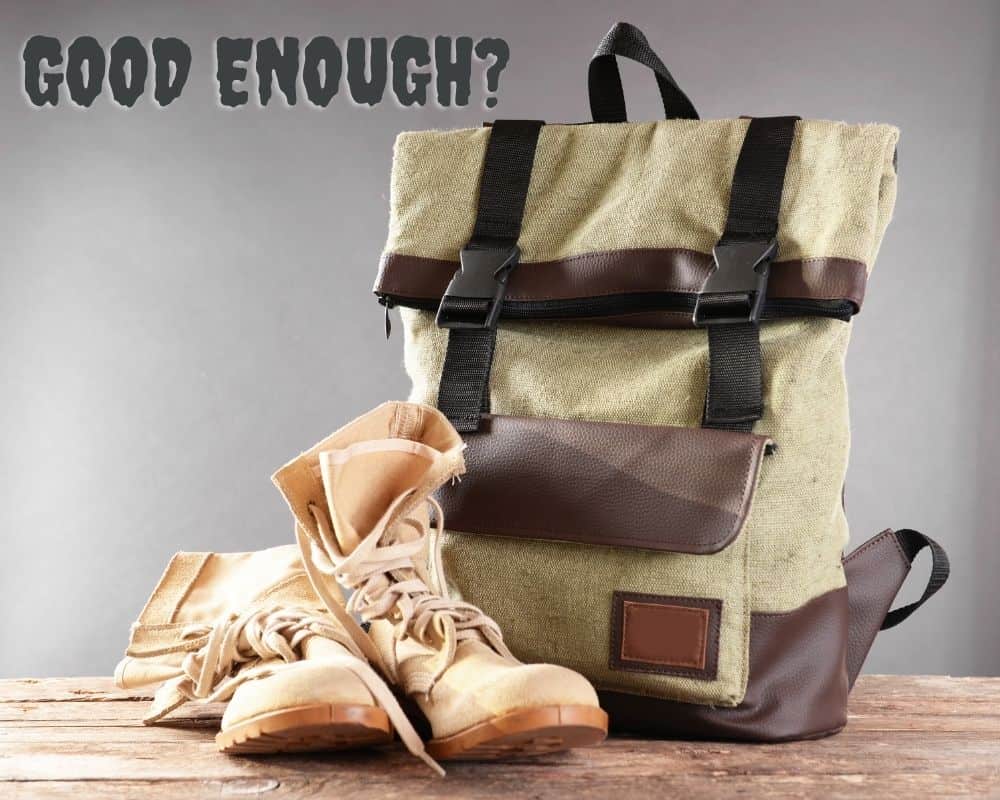
When choosing a metal detecting pouch, there are a few things you should keep in mind.
First, consider the size of the pouch. You want something big enough to hold all your metal detecting tools and accessories, but not too big or bulky that it gets in the way. Also, it should have additional room or attachable options to carry your finds.
Second, think about the type of material you want. You want something durable that can withstand the elements, as well as be able to hold up against wear and tear as I’m sure it will take a beating.
Third, how do you carry the pouch? If the pouch is made for you to carry over your shoulder, you may be in for a rude awakening when your back and shoulders start to complain about the weight.
Instead, opt for a metal detecting pouch that can be worn around your waist or attached to your belt. This will evenly distribute the weight and make it more comfortable to carry.
And finally, consider the price. Just because a metal detecting pouch is expensive doesn’t mean it’s the best quality. Do your research and read reviews before making your final
4. Pinpointer Metal Detector

A pinpointer metal detector is a small, handheld metal detector that is used to locate metal objects. It is a useful tool for metal detecting because it can help you find smaller items that are buried in the ground.
Pinpointers are not essential for metal detecting, but they can certainly make your life a lot easier. If you are serious about metal detecting, then I would recommend getting a pinpointer.
There are many different types of pinpointers available on the market, so it is important to choose one that you feel comfortable with.
For example, are the features useful to you in your normal detecting habits? Do you even need one, considering your metal detector may already have a pinpointing feature on it?
If you do decide that you want a standalone pinpointer, I would recommend getting the Garrett Pro Pointer AT.
- Fully waterproof to 10 feet with orange color for added visibility underwater
- Maximum Sensitivity for improved detection of nuggets and other small targets. Choose from three Sensitivity levels
- Fast Retune: Quick button press instantly tunes out environment or narrows detection field for precise pinpointing of larger targets
This is one of the more popular models available due to its visibility in low light conditions, as well as its durable design. It is also fully waterproof and has a belt holster for easy carrying.
To learn more about the Garrett Pro Pointer AT (and the Nokta PulseDive Pinpointer), be sure to check out our side-by-side comparison here.
If perhaps you want to look at a less expensive pinpointer metal detector, you may like the Dewinner Waterproof PinPointer.
Introducing the Dewinner PinPointer! This affordable little device is perfect for anyone who wants to start metal detecting. It’s lightweight and easy to use, with high sensitivity and 360° side-scanning capabilities. Plus, it has an IP66 waterproof design so you can use it in any environment.
Whether you’re at the beach or in your backyard, the Dewinner PinPointer will be sure to find any buried treasure, as long as it’s under 3.5 inches away.
It features an LED flashlight and is semi-waterproof (only the top half), so don’t get the idea that you can take this puppy scuba diving with you. This Dewinner starter pinpointer is really a great choice for kids or those just starting to take an interest in metal detecting.
Maybe you already have a pinpointer and you’re looking for something more ‘specialized’ to live up to your coin shooting desires. If that’s the case, have you considered a coin probe?
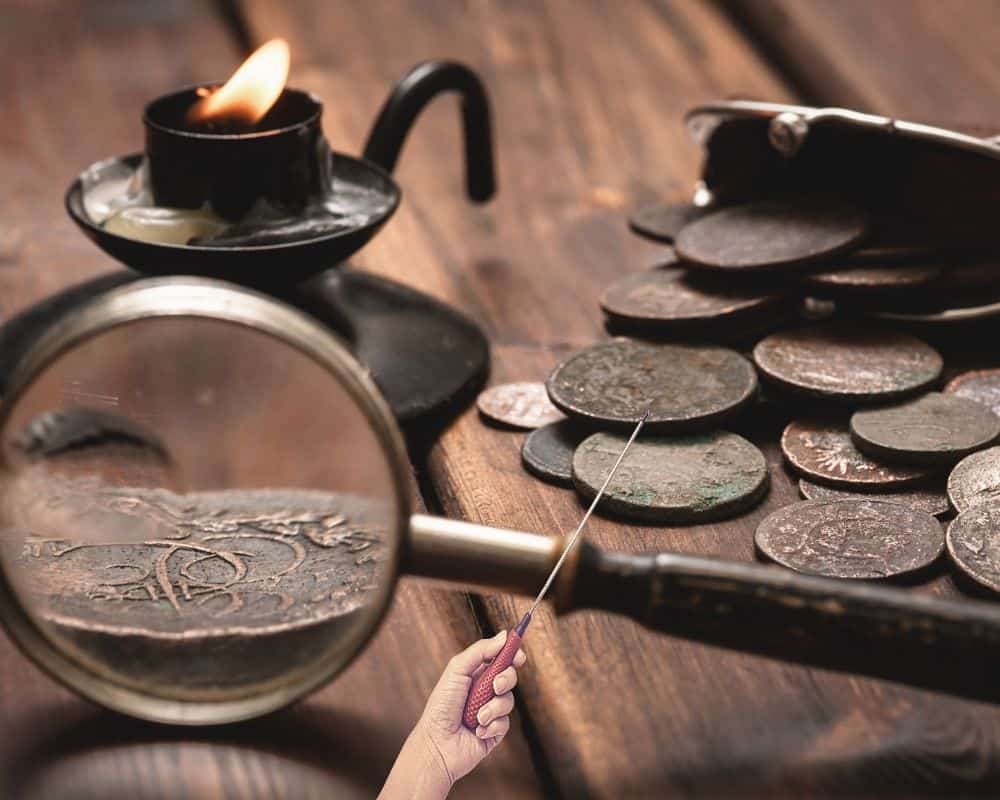
A metal detecting coin probe is a small, thin metal rod that is used to locate metal objects in the ground. It is a useful tool for coin shooting because it can help you find smaller coins without the worry of damaging any of your possible finds.
You see, the brass rod ensures that none of the coins touched get damaged because brass metal is softer than most coins.
If you are looking for a coin probe, we recommend the SE 9-1/2″ Brass Coin Probe.
The SE 9-1/2″ Brass Coin Probe is the perfect tool for coin collectors, gold panning enthusiasts, and treasure hunters! Made of non-marring brass, it’s tough and durable, yet gentle on your coins and treasures. With a 6-1/4” rod size and 5 mm thickness, it’s just the right size for precision handling.
What Should You Consider When Buying a Pinpointer Metal Detector?
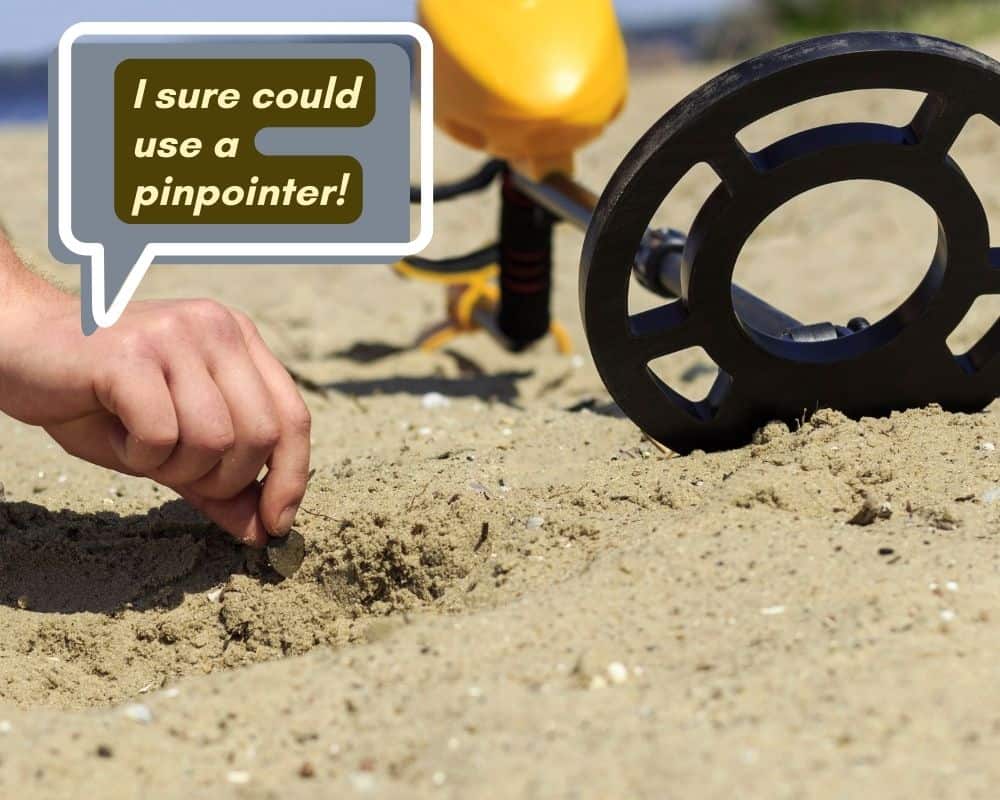
When you are looking for a pinpointer metal detector, there are several things that you should keep in mind. Some of these include the size of the unit, the weight, the sensitivity, the price, and the environment you are searching in.
The size of the metal detector is important because you want to be able to carry it with you easily. If it is too large, it may be difficult to transport. If you already have a pouch or holster, you may want to get a pinpointer that fits comfortably, avoiding additional expenses.
With the weight of the metal detector, you want something light enough for easy handling but not so light that it feels flimsy.
Sensitivity is very important in a metal detector. After all, that is the whole point, to be able to detect metal. You want something with good sensitivity so you don’t miss anything. The price is also another factor to consider as the cost will vary and your budget will play a factor. Sometimes you can find a bundle including a pinpointer that makes your purchase affordable and even a steal.

Finally, the environment you search in will also affect your decision. If you are going to be in the water a lot, you will want something waterproof or at least semi-waterproof.
If you are going to be metal detecting in the sand, a pinpointer with a longer rod may come in handy so you can avoid more laborious digging.
Whatever you decide, just know that a pinpointer metal detector will definitely take your metal detecting to a whole new level.
5. Metal Detecting Headphones
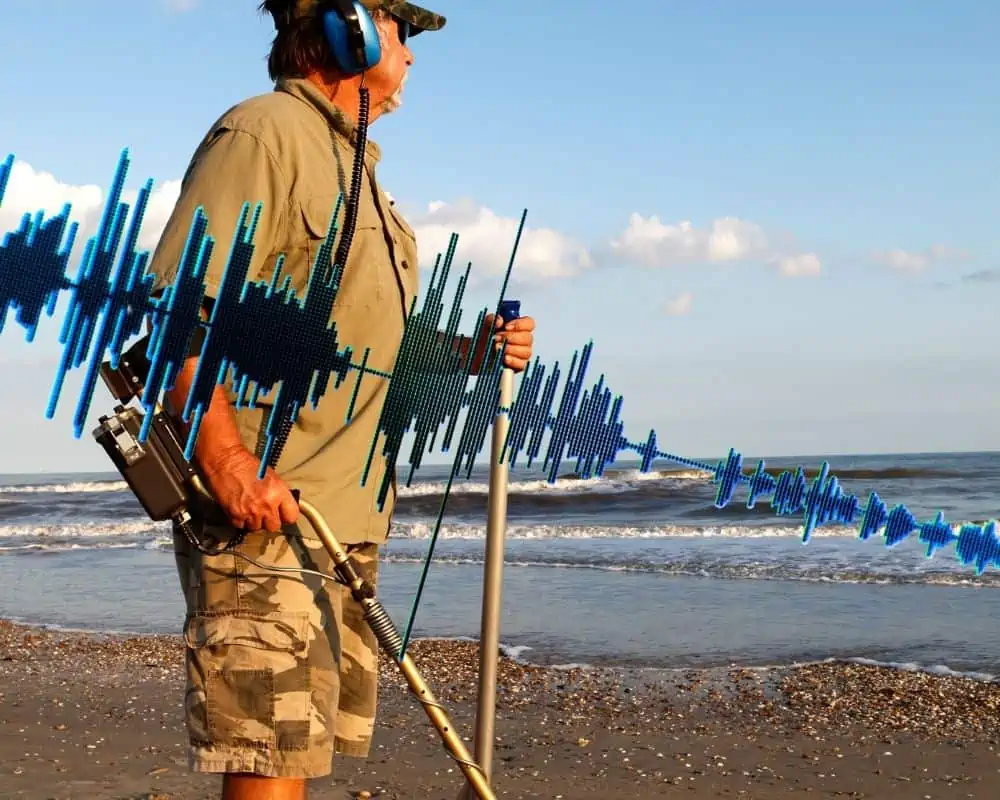
Headphones are an important metal detecting accessory because they help you to hear the faintest signals that your metal detector emits. This is especially important when you are searching in areas with a lot of background noise, such as on a busy beach, an area with running water, or in a field with high grass.
There are two main types of metal detecting headphones: wired and wireless.
Wired headphones are the more traditional type and they connect to your metal detector via a cord and aux cable. The main advantage of wired headphones is that they are usually less expensive than wireless headphones, and don’t require batteries or chargers.
Wireless metal detecting headphones use Bluetooth technology to connect to your metal detector. The advantage of wireless headphones is that they are more convenient and allow you greater freedom of movement.
This comes in handy when dealing with lots of bulky equipment, or when you need to keep your hands free for other tasks.
If you don’t have a preference for wireless or wired, I’d suggest checking out the Garrett ClearSound Easy Stow.
These headphones are designed with your comfort in mind – the padded and rotating earpieces make it easy to find a fit that’s perfect for you, while the In-Line Volume Control ensures that you always have complete control over your listening experience.
And with a 141-inch coiled cord that extends to 82 inches, it’s easy to keep these headphones close at hand when you need them.
This product accepts a 1/4″ headphone jack and works on any metal detector that meets the connection requirement. The Garrett ClearSound headphones weigh a mere 9.6 ounces, making them perfect for metal detecting on the go.
If you’d rather invest in a wireless option for your metal detecting headphones, you could spend on a pair of wireless headphones that work for your metal detector (if it is Bluetooth capable), or you can simply purchase a wireless adapter for your wired headphones.
A very popular wireless adapter is the Garrett Z-Lynk Wireless System.
With near-zero delay signal transmission and nearly universal compatibility, this system is perfect for anyone looking to improve their detecting experience.
With up to 30 hours of operation per charge and an auto-off feature that turns off the system after half an hour of no activity, you can feel comfortable knowing that your ZLynk won’t die on you in the middle of a metal detecting session.
The Garrett Z-Lynk creates an infinite number of channels to prevent interference and can be easily recharged with any micro-USB charging port. Did I mention that this thing is fast? Bluetooth speed is six times slower than the ZLynk system and up to four times faster than alternative wireless headphone kits.
Regardless of your metal detector frequency, the ZLynk will provide clear and powerful sound for both VLF and PI metal detectors.
What Should You Consider When Buying Metal Detecting Headphones?

When metal detecting, headphones are an important accessory to have as they help you hear faint signals that your metal detector emits. Sometimes your environment will limit the audible range of your detector if not using a set of headphones already, so it’s vital to have a pair ready for use.
Some things to consider when purchasing metal detecting headphones include your preference over wired or wireless, the comfort level, and the price you are willing to pay.
As I’ve said, metal detecting headphones can be wired or wireless. It’s important to know which type of headphone jack your metal detector has before making a purchase, as some only work with specific types of headphones.

If you have the option to choose between wired and wireless, it generally comes down to personal preference – though keep in mind that wireless headphones require batteries or charging.
When it comes to comfort, you’ll want to make sure that the headphones you select fit well and won’t cause any discomfort after extended periods of use. Many metal detecting headphones come with adjustable earpieces and headbands to ensure a comfortable fit for everyone.
Finally, metal detecting headphones can range widely in price depending on the brand, features, and quality. In general, metal detecting headphones are a relatively affordable accessory – but if you’re looking for a top-of-the-line pair, you can expect to pay over $100.
6. Extra Search Coils
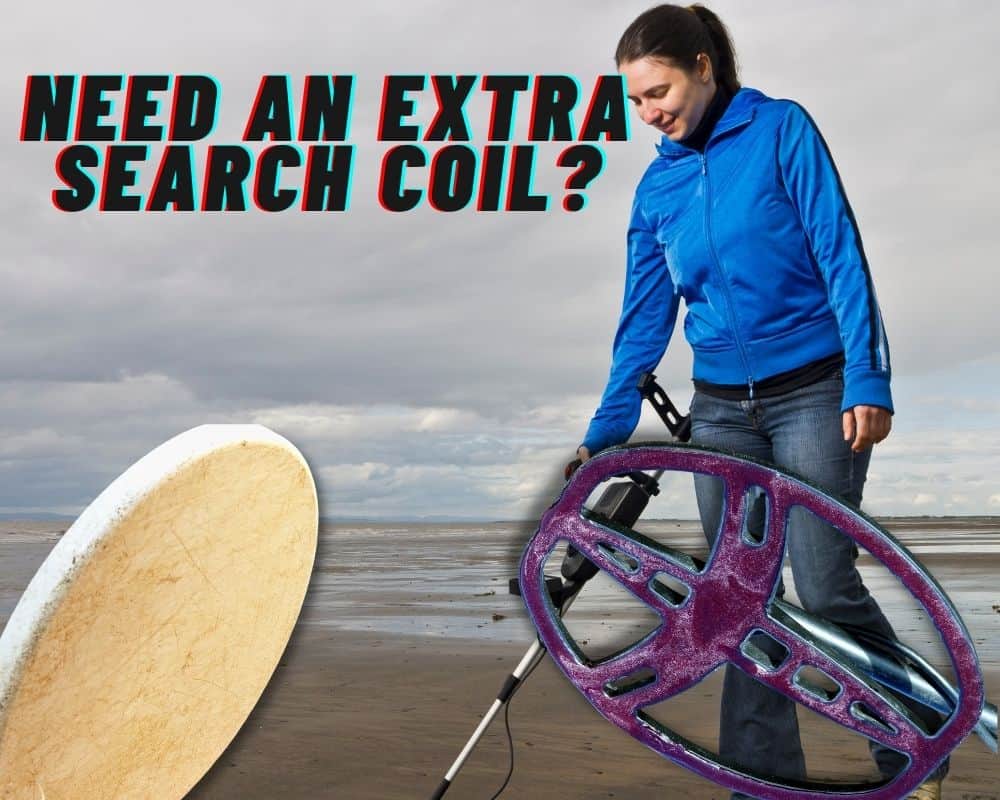
While not an essential metal detecting accessory, an extra search coil can be a valuable addition to your metal detecting toolkit – especially if you’re using a detector with a large coil.
An extra search coil allows you to quickly and easily swap out your current coil for another, without having to go through the process of carrying around multiple metal detectors for one hunt. This can be a lifesaver if you’re trying to metal detect in tight spaces or areas with a lot of obstacles.
Many detectorists choose to keep an extra search coil with them while treasure hunting because it makes sure there is no lost time if their primary coil becomes damaged or they require a different size for a specific grid.
What Should You Consider When Buying Extra Search Coils?
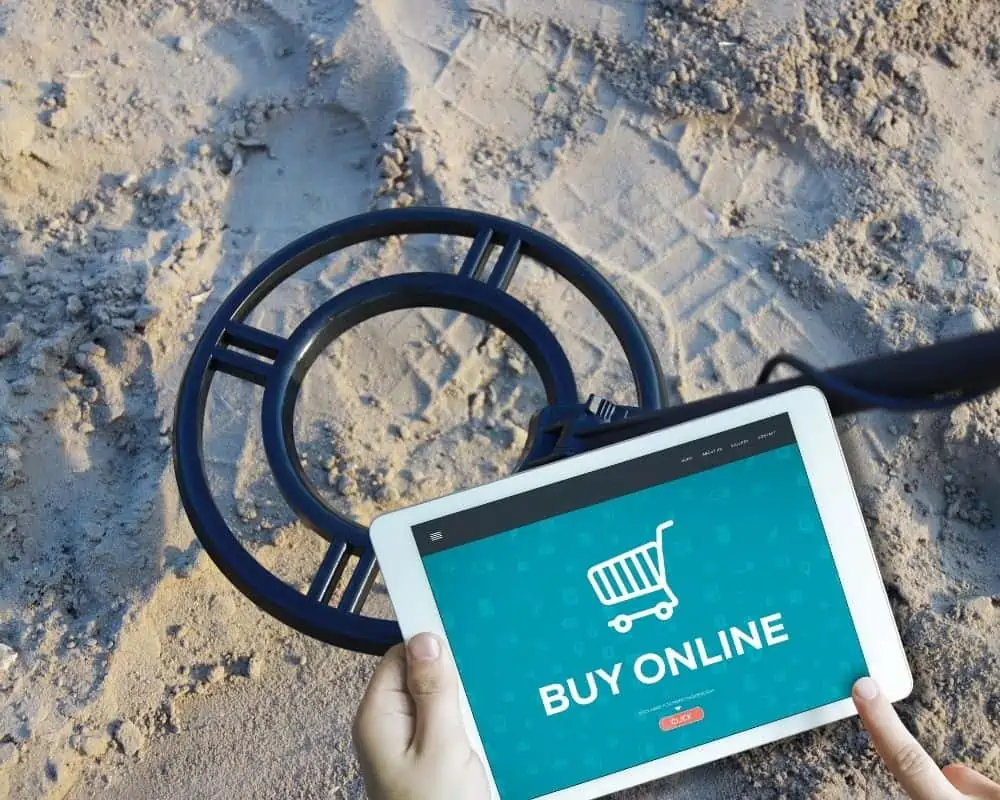
When selecting an extra search coil, it’s important to make sure that it is compatible with your metal detector. Incompatible coils can damage your metal detector and cause false readings.
It’s also important to consider the size of the coil. Larger coils can cover more ground and have greater depth generally but are more difficult to maneuver in tight spaces as we said. Where larger coils fall short often is when it comes to their sensitivity to smaller objects.
For instance, smaller coils may take longer to search a given area, but they make up for it in their ability to find smaller objects that may have been missed by a larger coil.

Another consideration when buying an extra search coil is the coil configuration. The most common coil configurations are the double-D and the mono. Each one has its purpose and strong points, you just need to figure out what you will be using your coil for before making a purchase.
Finally, keep in mind that extra search coils can be expensive – especially if you’re looking for a high-quality coil. It’s important to do your research and select a coil that fits both your metal detector and your budget.
7. Extra Batteries and Chargers
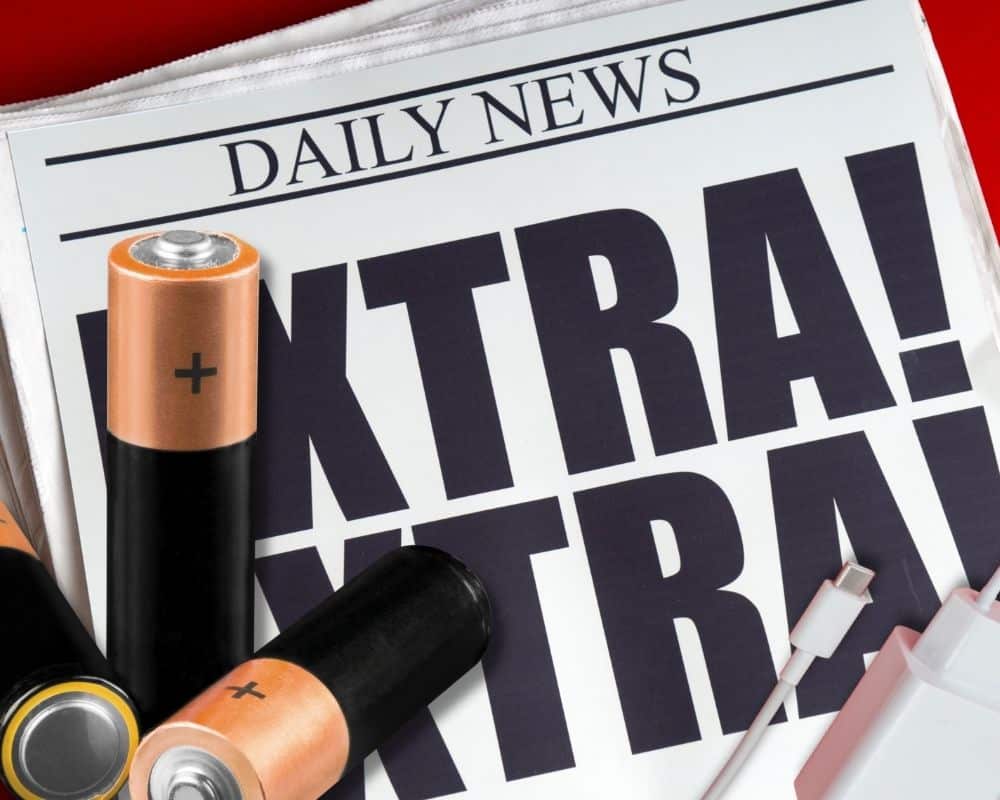
This is a metal detecting accessory that you hope you never have to use – but it’s always good to be prepared.
If you’re metal detecting in an area with limited or no access to outlets, having extra batteries on hand can be a lifesaver. It’s important to note that not all metal detectors use the same type of battery, so be sure to check what type of battery your metal detector uses before making a purchase.
In general, it’s a good idea to keep at least two extra batteries with you when metal detecting – especially if you’re planning on being out all day.
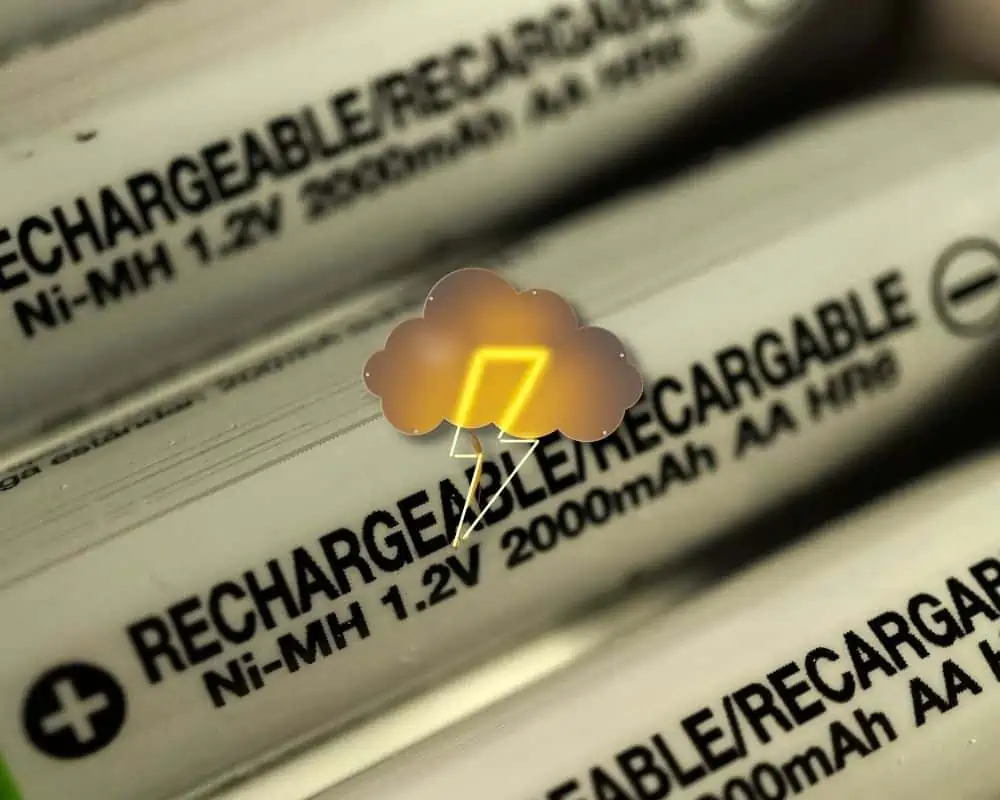
You might also like the use of rechargeable batteries. This way you don’t have to keep buying batteries, just recharge them after each use.
And if you’re using a metal detector that requires charging, it’s always a good idea to have a backup charger with you as well. That way, if your primary charger fails or is lost, you’ll still be able to charge your metal detector and keep on hunting.
What Should You Consider When Buying Extra Batteries and Chargers?

When purchasing extra batteries, it’s important to make sure that they are compatible with your metal detector. Also, make sure you are only putting in batteries that you know are fully charged as low batteries will cause your metal detector to give off false readings.
When it comes to buying an extra charger, buying to correct charger for your device is so important! Make sure you know what type of battery your metal detector uses and buy the charger that is made for that type. Otherwise, you could damage your metal detector by shorting out key parts of the circuitry.
Other than that, buying new batteries or chargers is pretty straightforward. Just be sure to read the manufacturer’s specifications.
8. Metal Detecting Harness
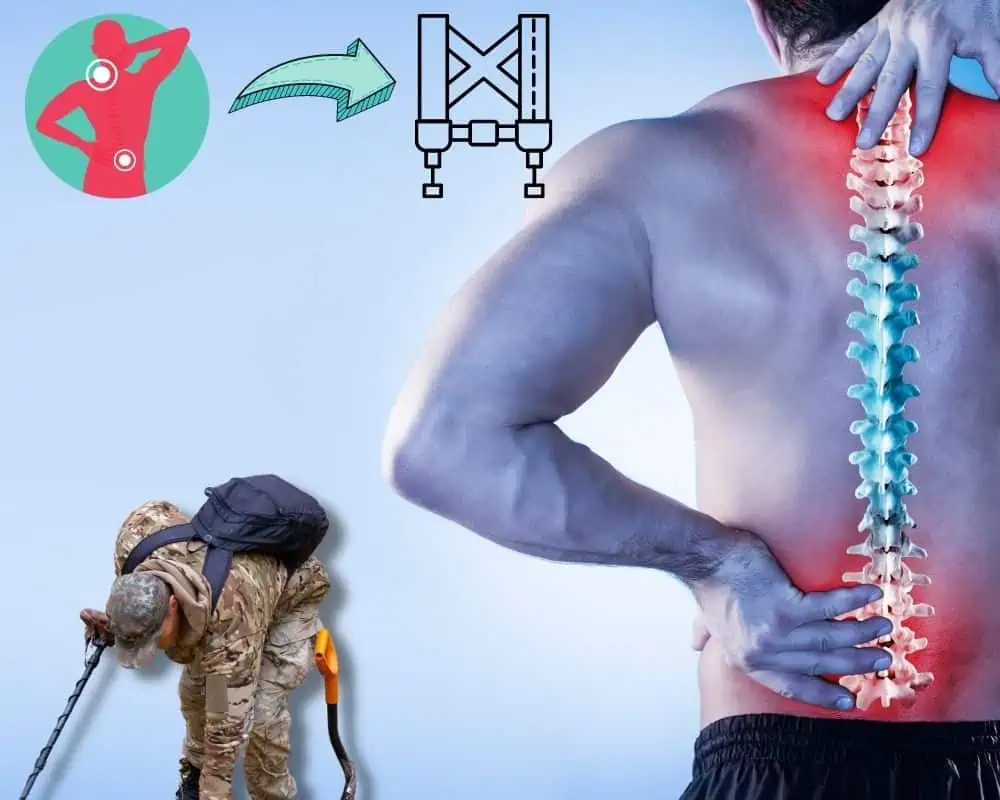
Another metal detecting accessory that can make your life easier is a harness.
While metal detectors are not particularly heavy, after a few hours of swinging them around, they can start to feel pretty heavy. A metal detecting harness can take the weight of the metal detector off your arm and distribute it across your body, making metal detecting a more comfortable experience.
Harnesses can come in various styles, so it’s important to find one that fits both your metal detector and your body. For instance, some harnesses support the weight by using your whole torso, while others use only your waist.
If you’re in the market for a good metal detecting harness, I’d take a look at the Detecting Pal Body Harness.
Detecting Pal Body Harness is the perfect accessory for detectorists of all experience levels! This lightweight harness takes the weight of your metal detector off your arm, shoulder and wrist, so you can swing effortlessly all day long.
Whether you’re a beginner just starting or an old hand, this handy harness will make detecting more comfortable and enjoyable.
This easy-to-use harness is adjustable for your comfort and features a slip-resistant design that will keep your detector securely in place while you swing, whether you are right-handed or left-handed. Plus, the Detecting Pal Body Harness is made of durable materials that will stand up to years of use.
What Should You Consider When Buying a Metal Detecting Harness?

When metal detecting, you’ll be doing a lot of walking – sometimes over rough terrain. So, it’s important to find a harness that is comfortable and will stay in place while you walk.
The straps on the harness should also be adjustable so that you can customize the fit. And, if you’re left-handed, make sure to find a harness that is made to be used by left-handed metal detectorists.
Finally, consider the materials the harness is made out of. You want something that is durable and will last for years – even if your metal detects every day.
9. Metal Detector Vest

Another great metal detecting accessory is a metal detector vest.
A metal detector vest is essentially a backpack with all the pockets and pouches you need to hold all your metal detecting accessories. This includes places to hold things like your pinpointer, extra batteries, digger, sifter, and more.
A metal detector vest can make metal detecting much more enjoyable as you won’t have to worry about losing any of your accessories or having them bang around as you walk. A vest can be used along with a metal detecting pouch to give you plenty of packing and storing options on your person.
And, when you’re ready to take a break, simply take off the metal detector vest and all your accessories will be right there waiting for you.
While outdoor vests are a dime a dozen, I highly recommend this Flygo men’s vest.
It features 16 pockets of all shapes and sizes, plus a zip-up closure to keep everything secure. Made from a lightweight and breathable fabric, it’s perfect for any activity. Plus, it comes in a wide range of colors to suit your style.
Its materials ensure a quick dry experience whenever the creeks and streams get the best of you. The Flygo vest is highly practical and will make you a much more resourceful detectorist.
And if you decide that camo is your color of choice, you might also like our article on why metal detectorists wear camouflage.
What Should You Consider When Buying a Metal Detector Vest?

When metal detecting, you’ll want a vest that is both comfortable and has enough pockets to hold all your accessories. Versatility is the magic word!
So, the first thing to consider as we just touched on is the feel of the metal detector vest. Is it comfortable to wear and is it lightweight and airy so that the heavier items in your pockets don’t weigh you down and have you perspiring through your shirt?
The second thing to consider is how many pockets the metal detector vest has, or in other words, is it functional? You want enough pockets to hold all your metal detecting accessories, but not so many that the vest feels bulky and cumbersome.
At that point, it just starts getting in the way of what you’re out there to do.

Finally, think about the style of the metal detector vest. Do you want something that will help you blend in with your surroundings or do you want a vest that makes a statement? If you’re metal detecting in the woods, you might want a more subdued color like green or brown.
But if you’re metal detecting at the beach, maybe you want something brighter so that people can spot you from a distance.
Honestly, that is more of a personal preference and not an actual necessary function for metal detecting.
10. Water-resistant Cover-ups for Metal Detectors
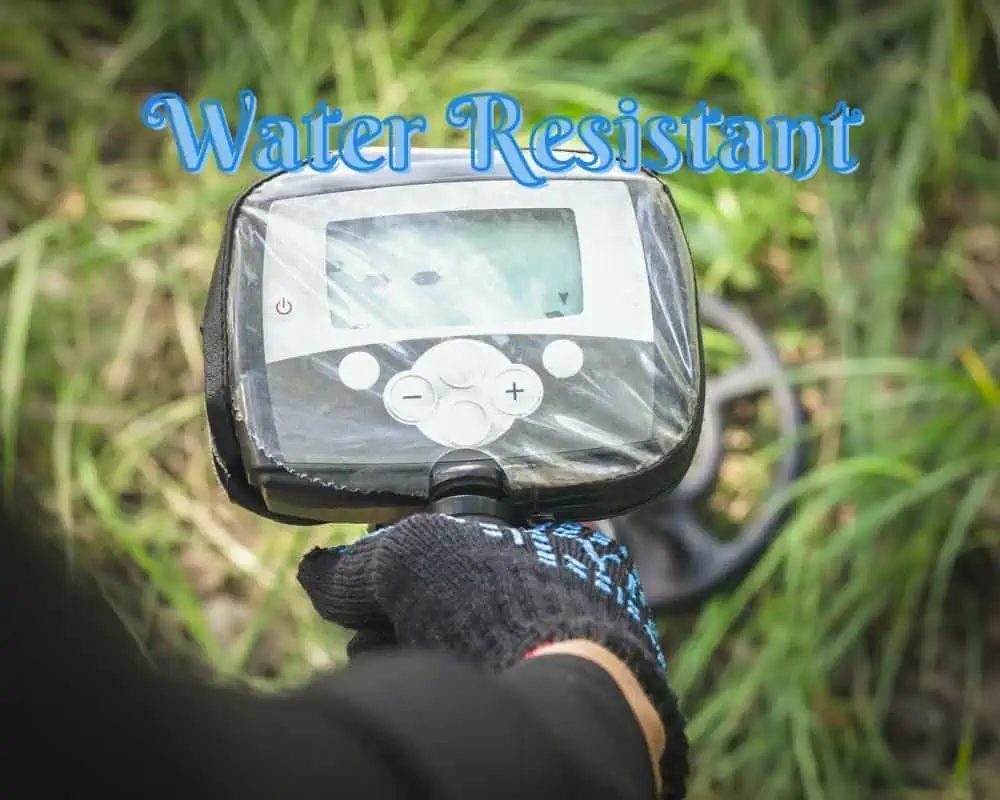
If you’re metal detecting near water or find yourself stuck in a storm, it’s a good idea to have a cover-up for your metal detector. This will protect your metal detector from getting wet and rusting or damaging the inner components.
A lot of metal detectors come with a built-in rain cover, but if yours doesn’t, or if you want something more heavy-duty, there are a few different options.
You may have to search for one that is specially made for your size or shape of metal detector, but fortunately, a lot of companies make them fit for multiple models made by their brand. While they don’t make your metal detector waterproof, they will protect it from light rain and splashes.
What Should You Consider When Buying a Water-resistant Cover-up?
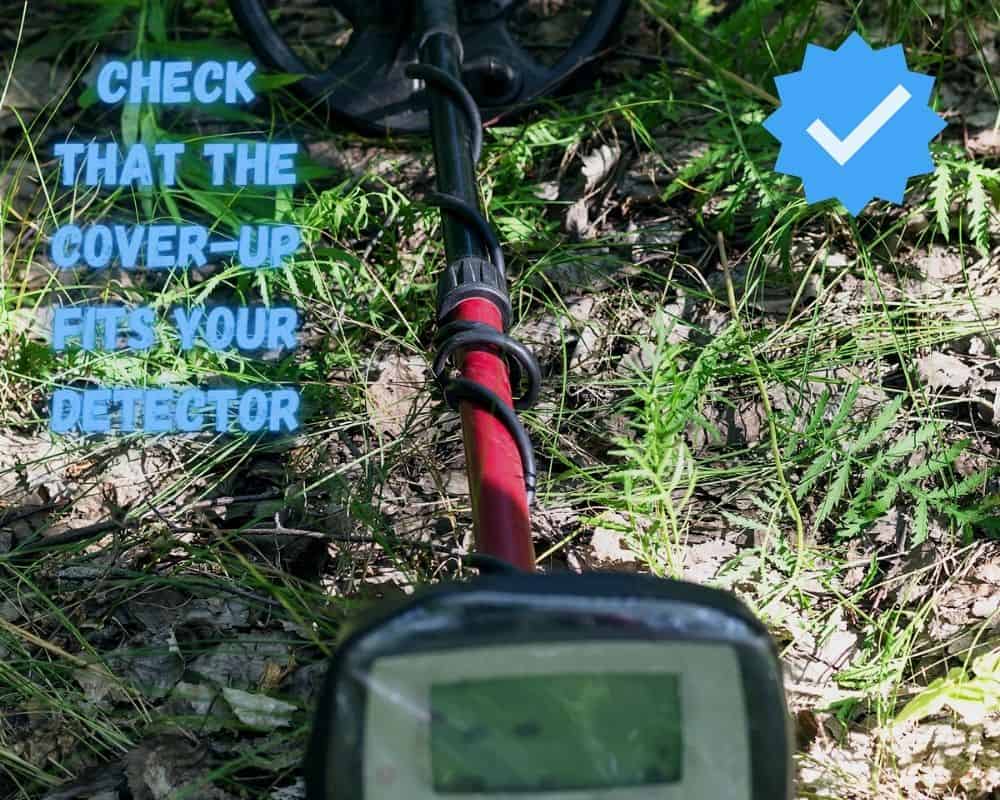
The first thing to consider is the size of the cover-up. You want something that will fit snugly over your metal detector so that water doesn’t seep in and damage it. As we previously said, your best bet is to start searching for one that was specifically made for your metal detector.
The second thing to think about is how easy it is to put on and take off. If you’re caught in a downpour, the last thing you want is to be fumbling around trying to put a cover-up on your metal detector.
You also want to make sure that the cover doesn’t impede your ability to use the metal detector. Sometimes, the covers can be a little bulky and make it difficult to maneuver the metal detector. If this is the case, it’s not worth it and you should keep searching for a better option.
11. Search Coil Covers

Another metal detecting accessory that can come in handy is a search coil cover or a skid plate. This is a metal, fabric, or plastic disc that goes over the search coil of your metal detector to protect it from getting scratched or damaged.
They also help to prevent false signals by keeping out small pieces of metal or other debris that can get caught up in the coils during regular use. In general, they just help to extend the life of your metal detector by protecting one of its most important parts.
I should also say, for you beginners, the search coil cover is not just for storage, but for active use as well. You will want to use it when metal detecting in high trash areas or where there is a higher probability of the search coil getting damaged.
A good rule of thumb is if the area looks like it would damage your search coil, put the cover on.
It’s always better to be safe than sorry and have to replace your metal detector’s search coil.
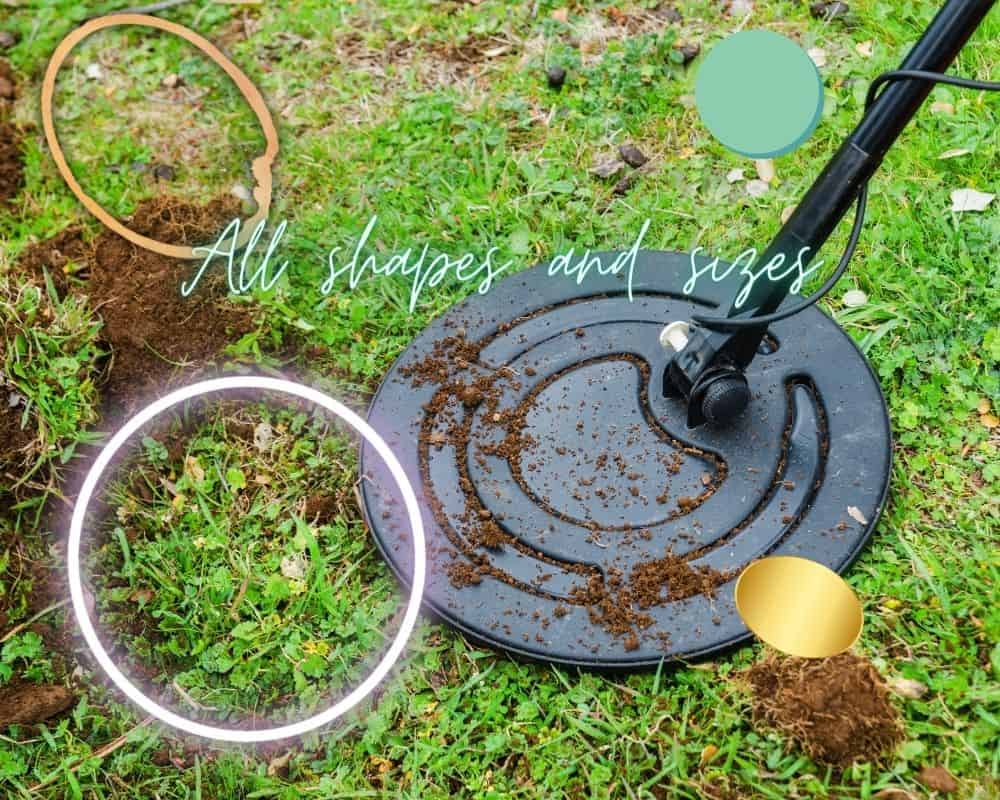
Search coil covers come in all different sizes and shapes for each kind of metal detector coil you can think of.
While it may not be a necessity, especially if you have a carry bag or something similar to stow your metal detector in, it is a good idea to consider getting one to keep your metal detector in top condition.
The cost of replacing or repairing your metal detector will be greater than thinking ahead and buying a search coil cover, that’s for sure.
What Should You Consider When Buying Search Coil Covers?
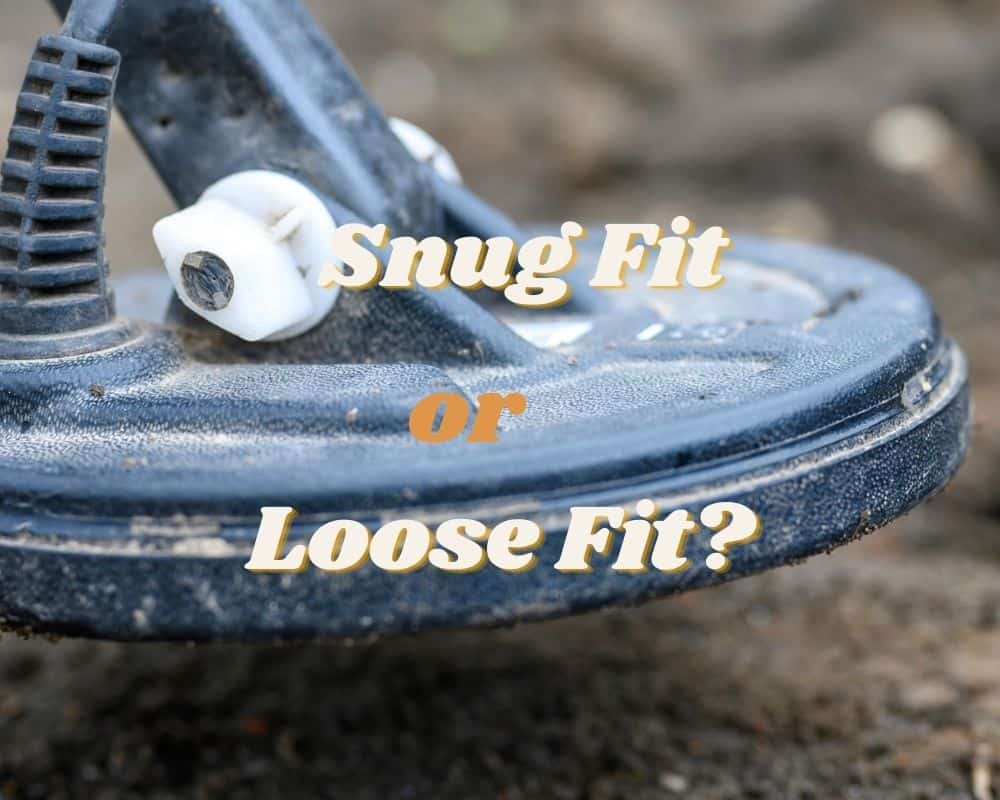
Like with the water-resistant cover-ups, you want to make sure that the search coil cover you buy is the right size for your metal detector.
The last thing you want is a cover that is too big or too small and either falls off or doesn’t protect the entire search coil.
It’s also important to consider how easy it is to put the search coil cover on and take it off. If you have to fiddle around with it too much and risk the chance of damaging your coil, it’s not worth your time and you should keep looking for another option.
You also want to make sure that the cover doesn’t impede your metal detecting in any way.
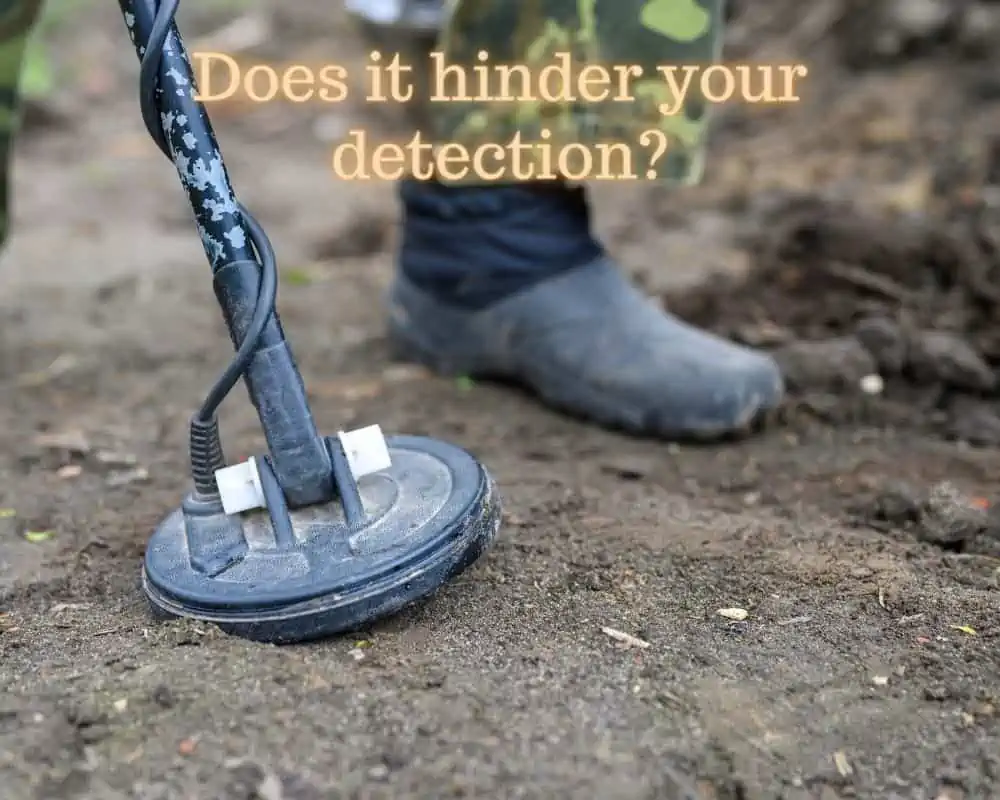
As we said before, sometimes these covers can be a little bulky and make it difficult to maneuver the metal detector. If this is the case, it’s not worth it and you should keep searching for a better option.
The bottom line is that you want a search coil cover that is the right size, easy to put on and take off, and doesn’t get in the way of your metal detecting.
Once you find one that meets all of those criteria, you’re good to go!
12. Metal Detector Accessories Kit
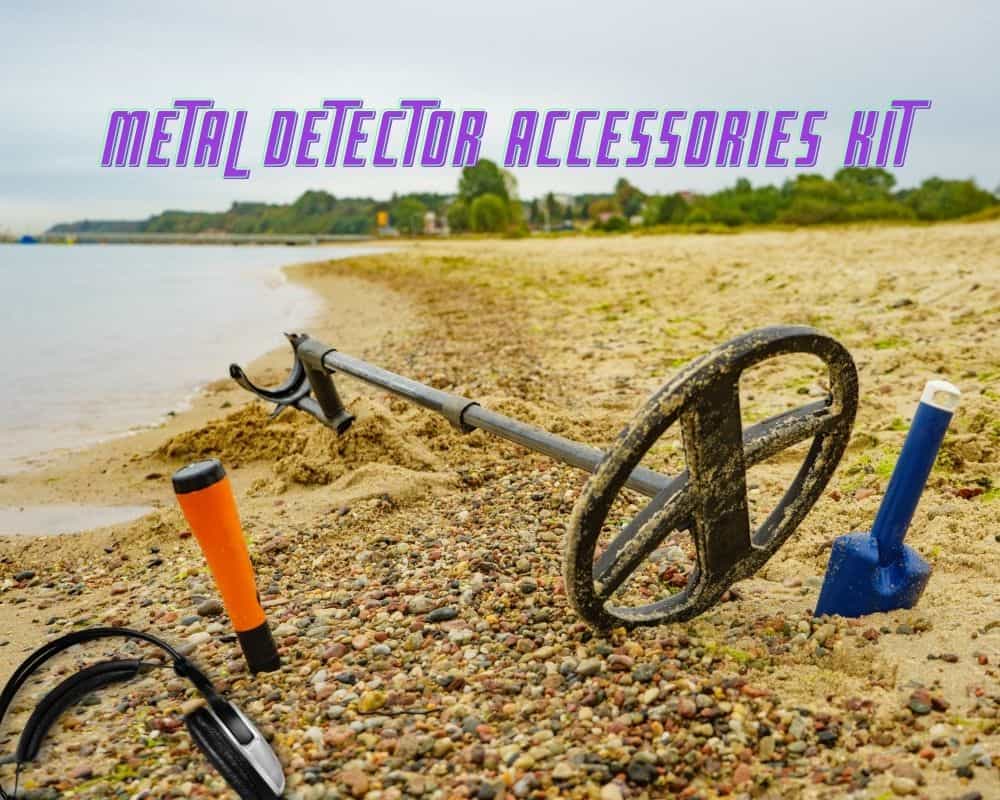
If you consider yourself to be a smart and savvy shopper, you’ll probably be on the lookout for bundled deals or holiday sales. What’s great about a lot of these recommendations we’ve made is that many of the items can be found as part of a metal detector accessory kit.
That way, you can save yourself a bit of money and get everything you need in one go.
A metal detector accessory kit is a great option for those just starting out because it often has all of the basic essentials that you’ll need to get started metal detecting.
For example, we suggest considering the Garrett Z-Lynk MS-3 Wireless Headphone Kit with Pro Pointer AT.
This Garrett accessory kit comes with everything you need to get the most out of your metal detector. The MS-3 Z-Lynk Wireless Headphones provide clear, interference-free sound and are comfortable to wear for long periods of time.
The WT-1 wireless transmitter connects to your detector and allows you to stream audio directly to your headphones with faster audio transmission than other devices with up to 200 feet of distance.
The Pro-Pointer AT Z-Lynk Pinpointing Metal Detector is a rugged and reliable tool that will help you zero in on your targets quickly and easily. The woven belt holster keeps your detector within easy reach and the 9-volt battery provides hours of use. This kit is essential for any serious treasure hunter.
Another great option is the Garrett Razor Relic Shovel, Garrett Edge Digger, and Camo Digger’s Pouch accessory kit.
This essential trio is perfect for all your digging needs. The shovel has a T-handle for added leverage, and the digger has strong carbon steel teeth to make excavation a breeze.
And don’t worry about where to put all your gear when you’re done – the pouch has an adjustable belt so it will fit anyone, plus two large zipper pockets to store everything safely.
This accessory kit is a steal as it comes with two amazing metal detecting digger tools and an added pouch to keep your tools and finds in.
There are many options for accessory kits out there, so it’s important that you take the time to find one that has everything you need and want.
Don’t be afraid to ask around or do your research online before making your final decision.
What Should You Consider When Buying a Metal Detector Accessory Kit?
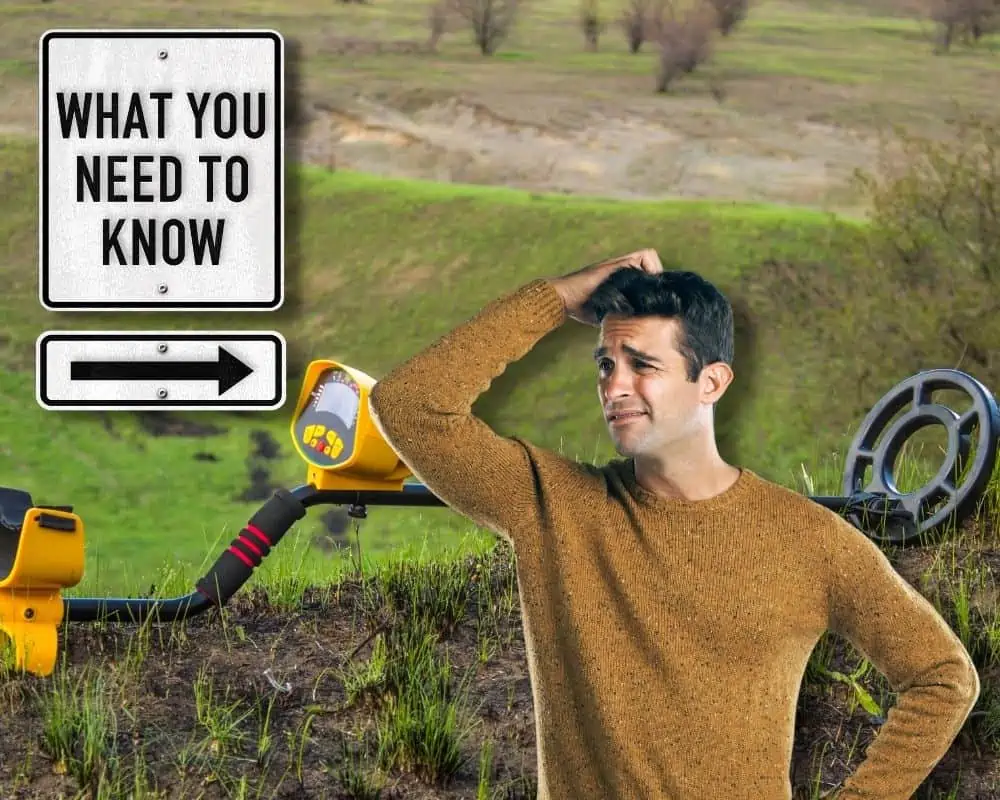
As with anything else, you want to make sure that you are getting a metal detector accessory kit that is high quality and will last you a long time. Ask yourself if it is made by a trusted brand or if it has good reviews. Is the material used to make the different components compatible with the kind of metal detecting you do?
You also want to make sure that the kit gives you the most value and effectiveness in your metal detecting experiences. If there are items that you don’t think you’ll use, it’s probably not worth it to spend the extra money on them.
Finally, you want to make sure that the kit is compatible with your metal detector.

You don’t want to end up with a bunch of accessories that you can’t use because they don’t work with your metal detector.
When you keep all of these things in mind, you’re sure to find the perfect metal detector accessory kit for you and your metal detecting needs.
What Accessories Do You Need With a Metal Detector?
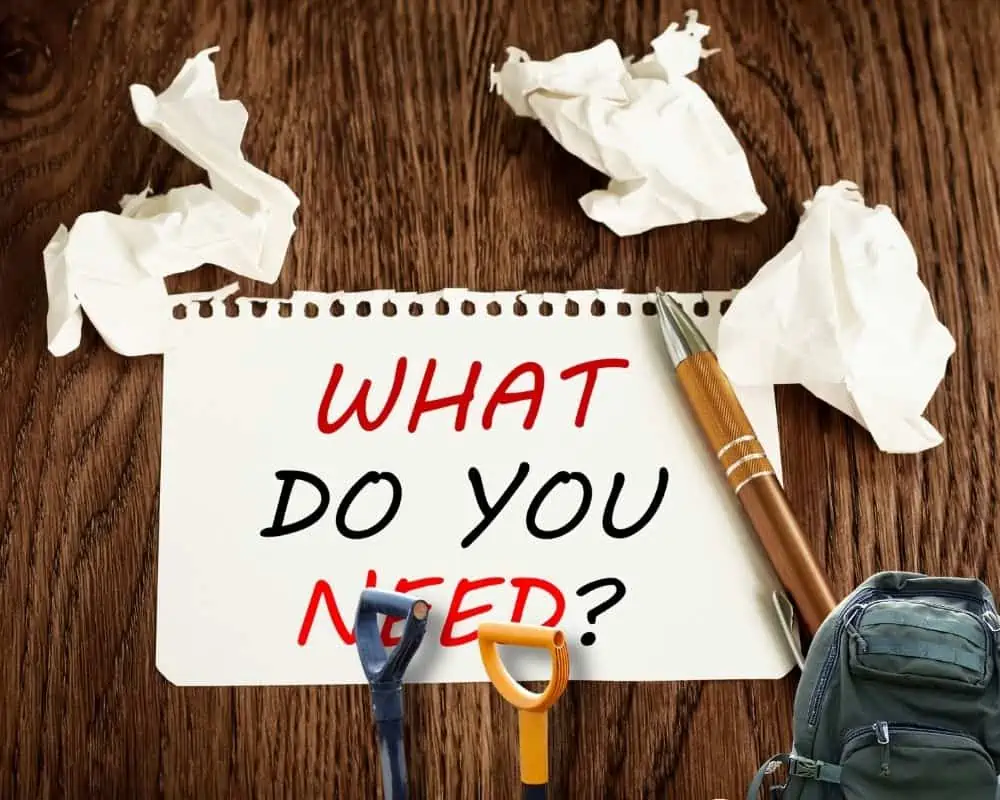
Now, while these 12 different accessory categories are great and have a designed purpose for every situation, don’t feel like you need to go on a spending spree to keep up with the professional hunters.
Are all these accessories nice to have? Yes!
Are they all required for a successful metal detecting trip? No, not at all!
You can metal detect without any of these (except maybe headphones) and still have a great time.
At a minimum, the best accessories you need with a metal detector are headphones, a pinpointer, a metal detecting pouch, and metal detecting digging tools.
Some people prefer to keep their metal detecting as simple as possible and that’s A-OK! The most important thing is that you’re out there enjoying the hobby and finding some great treasures.
You really just have to think about what kind of treasure hunting you plan on doing, assess the accessories or tools you already have, and ask yourself if adding ‘this’ particular accessory is going to benefit you.
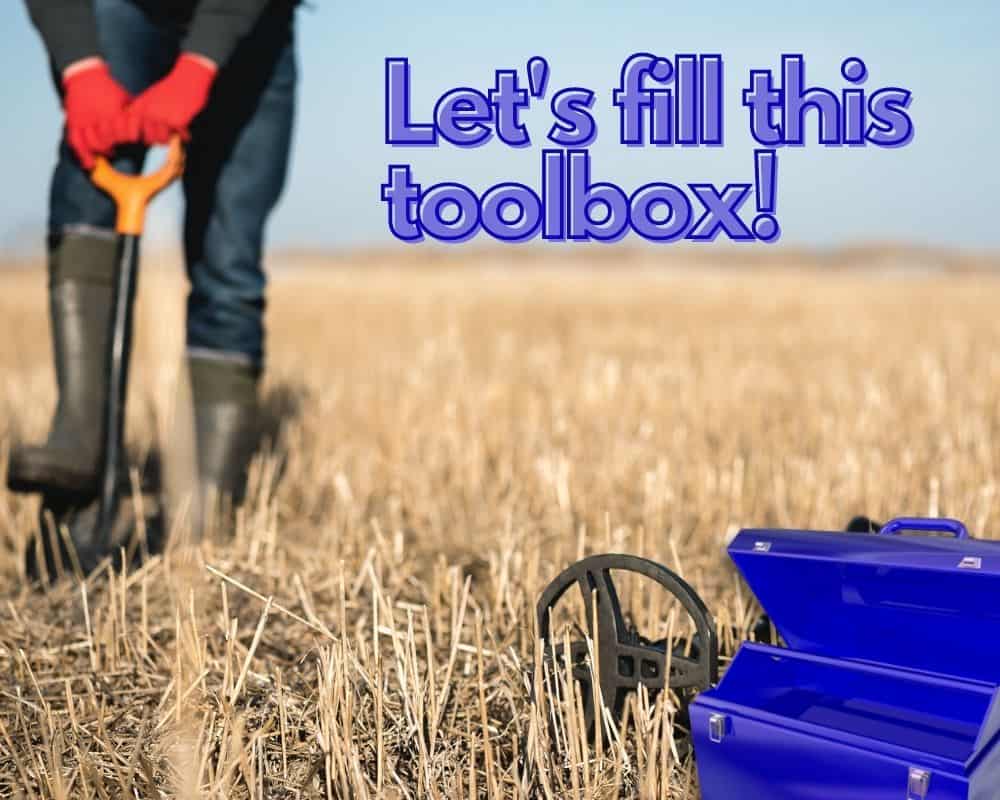
If you can answer yes, then go ahead and add it to your metal detecting toolbox.
You really can’t have too many metal detecting accessories but you also don’t need them all to have a great time metal detecting.
Wrapping Up
We hope you enjoyed this round-up of the best metal detecting accessories and found it helpful in your journey to becoming a metal detecting pro!
Remember, the best metal detector accessory is the one that’s right for you and your needs and adds value to your craft, so be sure to do your research before making any final decisions.
And if you make a purchase, while you wait for your new accessory to come in, be sure to check out these helpful metal detecting tips to try out on your next adventure!
Until next time!



















